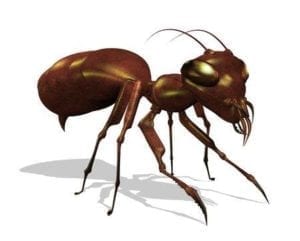The Sudden Death Of A Man Last Week Likely Occurred In Response To Fire Ant Bites
Insect experts, like entomologists and pest control professionals, often claim that even the most venomous types of insects that exist in the United States very rarely, if ever, pose a deadly threat to humans. Even non-insect arthropods, such as spiders and scorpions, almost never kill humans in the US. Of course, there do exist seemingly harmless insects in the US that can transmit insect-borne diseases. Mosquitoes, for example, kill more humans than any other animal, but in the US, dying from a mosquito-borne disease is quite rare, as a variety of treatment options are widely available and accessible to the American population. In cases when a venomous insect does kill a human, the victim likely had an allergy to the particular insect’s venom. It may not be surprising to learn that bees, especially Africanized honey bees, and wasps can kill people who are allergic to their venom, it is hard for anyone to imagine an ant as possessing deadly venom, unless, of course, the ant in question is a fire ant.
Last week a man, Floyd Edwards, died at the age of 66 as the result of an alleged fire ant attack. Edwards had been trying to cut an overgrown bush with his riding mower. After the mower blades became stuck, Edwards attempted to fix the problem when he suddenly told his wife that he was unable to breathe. Edward’s wife then called paramedics, but before they arrived, she noticed her husband’s tongue swelling, which is a sign of a serious allergic reaction. Despite this, Edwards did not have any known allergies. Sadly, Edwards died before he arrived to the hospital. Edward’s arms were found covered in what looked like bites, but medical experts could not conclusively confirm that he died from fire ant bites. However, his wife is sure that fire ants were the cause. According to medical experts, the five insects that are known for inducing deadly allergy attacks in humans are honey bees, hornets, wasps, yellow jackets and fire ants.
Have you ever heard of any instance in which a person suffered a fatal or potentially fatal allergic response to biting fire ants?






